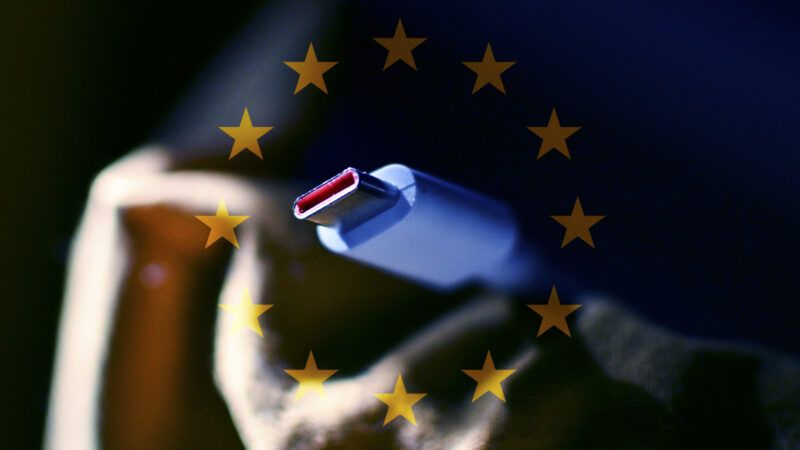The European Commission Wants You To Use USB-C Forever
Product differentiation is instrumental to technological innovation.

The European Commission announced on Saturday that all new electronic devices sold in the European Union (E.U.) must support USB-C charging. While this may seem convenient for today's consumers, it will stifle innovation in the long run and discourage technology companies from developing superior forms of charging technology.
In October 2022, the E.U. approved the Common Charger Directive, mandating that all cell phones, tablets, digital cameras, headphones, headsets, video game consoles, portable speakers, e-readers, keyboards, mice, portable navigation systems, and earbuds sold in the E.U. be chargeable via USB-C by December 28, 2024. The rule will extend to laptops in April 2026, covering nearly every major consumer electronic device.
In June 2022, the European Commission published a document explaining the motivation for the rule. The two stated goals of the directive were to save consumers $258 million a year "on unnecessary charger purchases" and to reduce 11,000 tons of annual electronic waste by 1,000 tons. The Commission complained that "only 2 out of 3 owned chargers are used by consumers." The use of "only" here is confusing, considering two out of three is a majority of 66 percent—and more than the 49 percent of E.U. residents who use the Type F socket (aka the Schuko socket), whose adoption the Commission has not mandated.
Former European Commissioner for Competition Margrethe Vestager celebrated the Common Charger Directive, describing it as "a real benefit to us as consumers." The Commission is undoubtedly right that one charger for (nearly) all electronics is more convenient and less costly to consumers than a unique charger for each device.
Thierry Breton, commissioner for the internal market, issued a more dubious claim, stating that the directive would foster the emergence of new technologies while preventing market fragmentation. However, by making USB-C the common port and forcibly harmonizing the market for fast-charging technology in the E.U., firms won't compete with each other based on charging technology and will consequently lack the incentive to invest in making it better.
One might argue that USB-C is good enough and that there's no plausible reason to require better charging technology. "So what if the iPhone 15 and later models use USB-C instead of a Lightning Cable?" Such an argument reflects a failure of imagination.
Jennifer Huddleston, senior fellow in technology policy at the Cato Institute, encourages regulators to consider "what would have happened if this decision had been made a decade earlier" in Reason. Huddleston explains that "a more regulated marketplace might have stopped…development in its tracks," leaving cell phone users stuck with micro- or mini-USB instead of the technology we enjoy today.
Market harmonization may save consumers hassle and money in the short run, but it does so at the expense of the innovation fostered by product differentiation.


Show Comments (53)